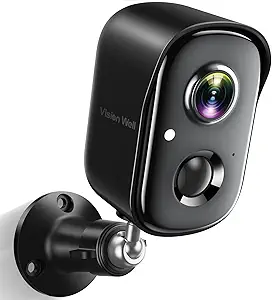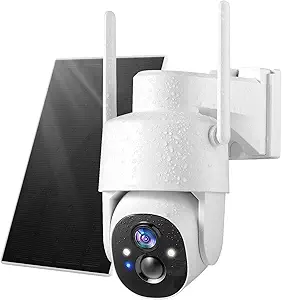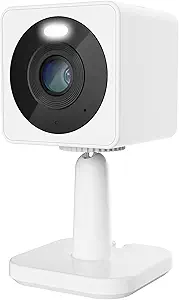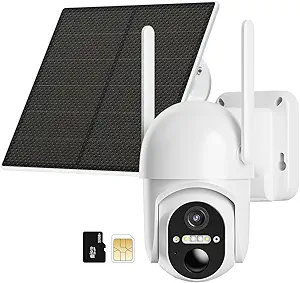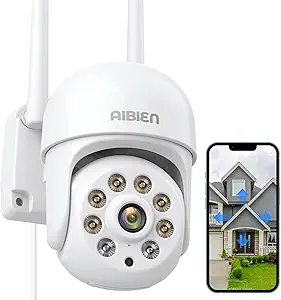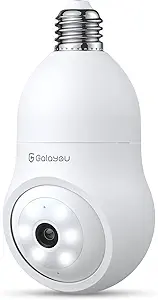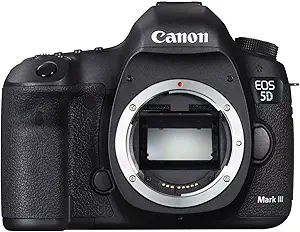The Ultimate Buying Guide for Surveillance & Security Cameras: Types, Features, Prices, and Tips
Overview
Surveillance and security cameras are essential tools for protecting your home or business. With so many options available, it can be overwhelming to choose the right one. This guide will help you navigate the different types of cameras, key considerations to keep in mind, important features to look for, and prices to expect. We'll also provide some tips to help you get the most out of your surveillance and security cameras.
Types
1. CCTV cameras: These are traditional wired cameras that are often used for commercial or industrial settings. They require professional installation and are typically more expensive than other types of cameras.
2. IP cameras: These are wireless cameras that connect to your network and can be accessed through an app or website. They're easier to install and can be used for both home and business settings.
3. Wireless cameras: These cameras are similar to IP cameras, but they don't require a network connection. They use Wi-Fi to connect directly to your device and are often used for home security.
4. Indoor cameras: These cameras are designed for use inside your home or business. They're often smaller and less conspicuous than outdoor cameras.
5. Outdoor cameras: These cameras are designed for use outside your home or business. They're typically weatherproof and have night vision capabilities.
6. Night vision cameras: These cameras are equipped with infrared lights that allow them to capture clear footage in low-light conditions.
7. Motion detection cameras: These cameras are designed to detect movement and can be set up to send alerts when motion is detected.
8. Remote access cameras: These cameras can be accessed from anywhere in the world through an app or website.
9. Video doorbells: These cameras are installed in your doorbell and allow you to see and communicate with visitors through your phone.
10. Smart home security cameras: These cameras can be integrated with other smart home devices, such as smart locks and lights.
Key Considerations
1. Purpose: Determine why you need a surveillance or security camera and where you want to install it.
2. Location: Consider where you want to install the camera and whether it needs to be weatherproof or have night vision capabilities.
3. Budget: Determine how much you're willing to spend and whether you want a professional installation or a DIY option.
4. Features: Consider the features you want, such as motion detection, remote access, and cloud storage.
Features
1. Resolution: Higher resolution cameras will provide clearer footage.
2. Field of view: Consider the angle of the camera and how much of the area it will cover.
3. Zoom: Some cameras have the ability to zoom in on specific areas.
4. Audio: Some cameras have two-way audio capabilities, allowing you to communicate with visitors or intruders.
5. Storage: Consider whether you want cloud storage or local storage options.
Prices
Prices for surveillance and security cameras can vary widely depending on the type, features, and quality. Expect to pay anywhere from $50 to $500 for a single camera. Professional installation will add to the cost.
Tips
1. Position your cameras strategically to get the best coverage.
2. Use signage to let people know that they're being recorded.
3. Make sure your cameras are secure and protected from tampering.
4. Regularly check and maintain your cameras to ensure they're working properly.
FAQs
Q: Do I need professional installation for my surveillance cameras?
A: It depends on the type of camera and your level of comfort with DIY installation. CCTV cameras typically require professional installation, while wireless cameras can often be installed by the homeowner.
Q: Can I access my cameras remotely?
A: Yes, many cameras offer remote access through an app or website.
Q: Do I need cloud storage for my footage?
A: It depends on your needs and preferences. Cloud storage offers a convenient way to access your footage from anywhere, but it can also be more expensive.
Q: How many cameras do I need?
A: The number of cameras you need will depend on the size of the area you want to monitor and your specific needs.
Conclusion: With so many options available, choosing the right surveillance and security cameras can be overwhelming. By considering your needs, budget, and key features, you can find the perfect cameras to protect your home or business. Remember to position your cameras strategically, use signage, and regularly maintain your cameras to ensure they're working properly.

